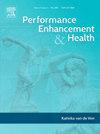不是被动的受害者:挪威电子竞技学生对毒性的性别理解、经验和应对策略的定性研究
IF 3.7
Q2 HOSPITALITY, LEISURE, SPORT & TOURISM
引用次数: 0
摘要
在电子竞技和在线游戏中,毒性代表着一种重大挑战,源于负面行为,包括骚扰、仇恨言论和欺凌。尽管之前的研究已经证明了它的普遍性,但对于年轻的电子竞技选手如何经历和应对这些问题,尤其是在教育背景下,我们知之甚少。本研究考察了参加精英电子竞技项目的挪威高中生如何感知、体验和管理毒性。对12名学生(9名男生,3名女生)的访谈和对10名学生(7名男生,3名女生)的后续访谈进行了反身性主题分析,揭示了基于表演和身份的毒性体验。男学生主要面临的是基于成绩的毒害,而女学生则遇到了性别骚扰。男性同事谴责这种性别骚扰,但强调他们自己经历的严重性。除了性别之外,玩家还注意到技能水平会影响毒性的频率和类型,中级玩家比低级或高级玩家更容易受到毒性的影响。虽然毒性很普遍,但学生们拒绝了受害者的心态。他们采用了各种各样的应对策略——从社交、技术、教学、游戏和心理方法——从而展示了韧性和培养包容性电子竞技社区的承诺。本研究揭示了教育环境如何塑造应对策略和毒性意识。它强调必须在电子竞技治理和心理健康举措中采取包容性和性别敏感的方法,以解决与成绩有关的毒性和性别排斥问题。未来的研究应该探索教育干预如何延伸到学校之外,以及技能水平和交叉因素(如种族、性别和社会经济背景)如何与性别相互作用,从而影响电子竞技中的毒性。本文章由计算机程序翻译,如有差异,请以英文原文为准。
Not passive victims: A qualitative study of gendered understandings, experiences, and coping strategies of toxicity among Norwegian Esports students
In esports and online gaming, toxicity represents a significant challenge that stems from negative behaviours, including harassment, hate speech, and bullying. Although prior research has documented its prevalence, not much is known about how young esports players experience and navigate these issues, particularly in educational contexts. This study examines how Norwegian high school students in an elite esports programme perceived, experienced, and managed toxicity. A reflexive thematic analysis of interviews with 12 students (9 male, 3 female) and follow-up interviews with 10 students (7 male, 3 female) revealed experiences of both performance- and identity-based toxicity. While male students primarily faced performance-based toxicity, female students encountered gendered harassment. Male peers condemned this gendered harassment but emphasised the severity of their own experiences. Beyond gender, players noted that skill level influenced the frequency and type of toxicity, with mid-tier ranks experiencing it more than those in lower or higher tiers. Although toxicity was prevalent, students rejected the victimhood mentality. They employed various coping strategies—ranging from social, technical, pedagogical, in-game, and psychological approaches—thereby demonstrating resilience and a commitment to fostering inclusive esports communities. This study reveals how educational environments shape coping strategies and awareness of toxicity. It emphasises the necessity for inclusive, gender-sensitive approaches in esports governance and mental health initiatives to tackle performance-related toxicity and gender exclusion. Future research should explore how educational interventions extend beyond schools and how skill level and intersectional factors—such as ethnicity, sexuality, and socioeconomic background—interact with gender to influence toxicity in esports.
求助全文
通过发布文献求助,成功后即可免费获取论文全文。
去求助
来源期刊

Performance enhancement and health
Social Sciences-Health (social science)
CiteScore
4.70
自引率
0.00%
发文量
27
审稿时长
57 days
 求助内容:
求助内容: 应助结果提醒方式:
应助结果提醒方式:


